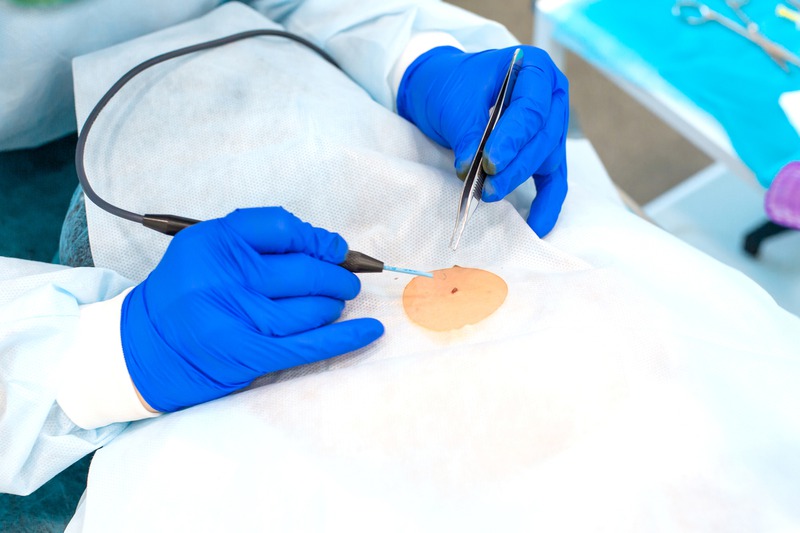If you’re considering a minor plastic surgery procedure, you’re not alone. Many people choose plastic surgery to enhance their appearance, fix imperfections, or even address medical concerns. But no matter how minor the surgery, preparation is key to ensure the best possible outcome and a swift recovery.
What Is Minor Plastic Surgery?
Unlike major procedures that may require extensive surgery and long recovery periods, minor surgeries are typically less invasive and often performed on an outpatient basis. These procedures can range from skin treatments like mole removals to more involved surgeries such as eyelid lifts or rhinoplasties with a shorter recovery time.
Checking out credible sources can be invaluable for getting more specialized information on the subject. One such resource is websites like https://www.theminorsurgerycenter.com/, which offers insights into various minor procedures and the considerations involved.
Preparing for a Minor Plastic Surgery
1. Research and Consultation
-
Start by thoroughly researching your procedure. Read up on what it involves, the potential risks, and the expected recovery process.
-
Choose a qualified plastic surgeon with an excellent track record in your desired procedure. Credentials and experience do matter.
-
Schedule a consultation and come prepared with a list of questions. An informed patient is an empowered patient.
2. Physical Preparation
Physical readiness is a cornerstone of surgical success. Your body needs to be in prime condition to handle the stress of surgery and to heal effectively afterward. Here’s what you can do:
-
Maintain a healthy diet. Nutritious foods can enhance your body’s ability to recover.
-
If you smoke, you’ll need to stop. Smoking can interfere with your blood flow and healing potential.
-
Get enough sleep and rest in the days leading up to the surgery.
-
Adjust your medications as advised by your surgeon to avoid any complications during the procedure.
-
Avoid alcohol and supplements that may cause increased bleeding for a week prior to surgery.
3. Mental and Emotional Preparation
The way you feel mentally can impact your recovery. Make sure you:
-
Set realistic expectations for the outcome of your surgery. It can do wonders, but it has its limits.
-
Arrange for support from friends or family on the day of surgery and during recovery.
-
Prepare for some downtime, including time off work and a break from some daily activities.
-
Develop a stress management plan, whether that’s meditation, reading, or binge-watching your favorite series.
4. Financial and Logistical Considerations
Does your health insurance cover the surgery? What about the other costs, like post-op medications or special garments? Lay out a budget and understand the financial obligations so there are no surprises.
It’s also wise to plan the logistics. How will you get to and from the surgery center? Can someone stay with you immediately after the surgery? Nailing down these details ahead of time will give you peace of mind.
5. Special Considerations for Specific Surgeries
Different types of minor plastic surgeries come with their unique set of preparations.
Carpal Tunnel Surgery
Consider carpal tunnel surgery — it’s a common but specific operation aimed at relieving the symptoms of carpal tunnel syndrome. It’s a delicate procedure requiring a skilled carpal tunnel specialist in Toronto or wherever you may be located. Preparing for this type of surgery often includes exercises, wrist splinting, and avoiding activities that exacerbate the condition leading up to the surgery.
Hair Loss (Alopecia) Treatment
Another unique example is the approach to hair loss treatment. If you’re undergoing a procedure to tackle alopecia, your preparation might be focused on the scalp. Opting for an alopecia treatment Toronto-based clinic, for instance, would mean preparing according to the specific instructions of the local specialists, which could include medications or particular hair care regimens before the treatment.
6. Day Before Surgery
It’s almost game time! Here’s a checklist for the day before surgery:
-
Confirm the time of your surgery and verify transportation arrangements.
-
Follow any specific instructions given by your surgeon, like not eating after midnight.
-
Organize a comfortable recovery area at home, complete with necessities within easy reach.
7. Morning of Surgery
The big day has arrived. To ensure you’re all set:
-
Avoid wearing makeup, jewelry, or any lotions. You want nothing to interfere with the procedure.
-
Wear comfortable, loose-fitting clothes that are easy to get on and off.
-
Bring your ID, insurance card, and payment method (if applicable).
-
Take deep breaths, stay calm, and look forward to the positive changes ahead!
By following these steps, you’ll set yourself up for a successful surgery and a smooth recovery. Remember, minor plastic surgery is still a significant event, and caring for yourself beforehand is a crucial piece of the puzzle.
Final Thoughts
In the end, it’s about taking the time to care for yourself, making informed decisions, and trusting in the journey that will bring you closer to your goals. Whether it’s to improve appearance, function, or well-being, minor plastic surgery can be a transformative step in your life — and preparation paves the path to success.





